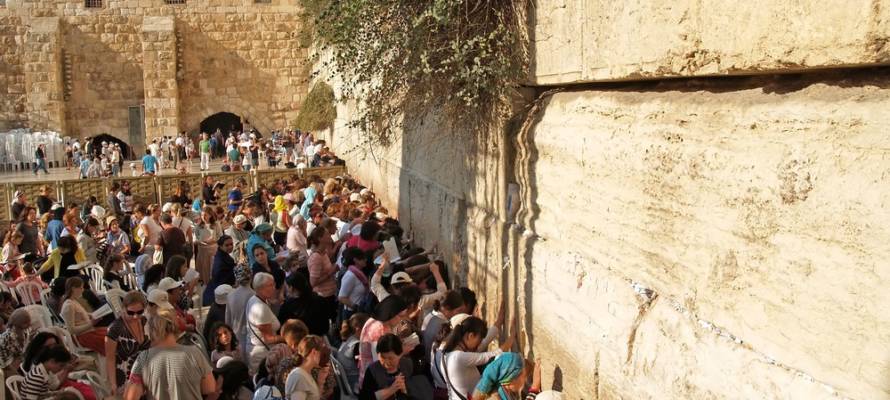Why are the end of the Torah and the beginning of the Torah so interconnected?
By: Rabbi Ari Enkin, Rabbinic Director, United with Israel
This week’s Torah portion is “Bereishit” (Genesis 1:1 – 6:8) and it is the first Torah portion in the Torah! In other words, if you want to find this week’s Torah portion in a Bible, you could probably find it on page one! Earlier this week, as part of the holiday of Simchat Torah, which comes on the heels of the holiday of Sukkot, we completed the annual Torah reading cycle. It’s back to the beginning.
The Torah ends with the words “and all the great wonders and all the mighty hand that Moses performed in view of all of Israel” and begins with the words “In the beginning, God created heaven and earth.”
We are taught that the end of the Torah and the beginning of the Torah are very much interconnected. In fact, this is one of the reasons that on Simchat Torah we immediately begin reading the Torah anew as soon as it is finished. Let’s see how the end of the Torah and the beginning are connected.
The final verse of the Torah refers to the miracle of the Exodus, which occurred “in view of all of Israel.” The Jewish people personally saw God’s power and miracles. There is probably no greater proof that “In the beginning, God created heaven and earth” (nor is any further convincing needed) than being able to witness such awesome events. Hence, the last verse of the Torah sheds light and compliments the first verse of the Torah.
Another interpretation has it that the words “in view of all of Israel” refers to the episode when Moses smashed the tablets of the Ten Commandments after he saw the Golden Calf. We are told that until that time people would permanently remember any Torah knowledge they had amassed.
There was no such thing as forgetting and no such thing as having to review for tests! It was only now that the trait of forgetfulness entered the world. The fact that we immediately begin reading the Torah from the beginning alludes to this episode by reminding us that we have to be sure to review our studies from the beginning to ensure we don’t forget them.
Finally, the connection between the end of the Torah and the beginning is also said to relate to the death of Moses. The Torah concludes by describing Moses as the greatest prophet who would ever live. It is taught that the Jewish people were now fearful how they would continue on without Moses. Moses had saved the Jewish people and intervened to God on their behalf so many times in the past. The people were worried that should they sin again there would be nobody to appease God on their behalf.
The first verse in the Torah puts their mind at ease. We are told that the reason the God Created the world was in order for the Jews to be able to perform the mitzvot. Hence, the Jewish people are re-assured, so to speak, that as long as they continue to perform mitzvot they need not worry about any Divine wrath or annihilation.
So as we begin the annual cycle of the Torah anew this week, let’s keep in mind these important lessons: the entire Jewish people saw the miracles of God, which is proof enough that He also created the world; studies in general, and Torah studies in particular, must always be reviewed; and the world exists in the merit of our performance of mitzvot and good deeds.
For more insights by Rabbi Ari Enkin on this week’s Torah portion, click on the links below.
https//unitedwithisrael.org/israel-for-the-jews/
https://unitedwithisrael.org/living-torah-everything-god-does-is-for-the-good/
https://unitedwithisrael.org/living-torah-to-lose-gracefully-is-to-remain-a-winner/
https://unitedwithisrael.org/living-torah-and-god-saw-that-it-was-good/
